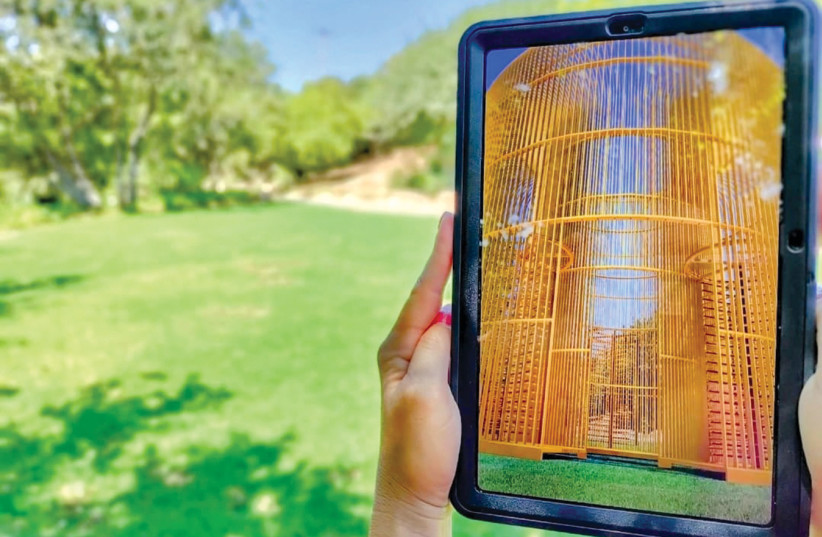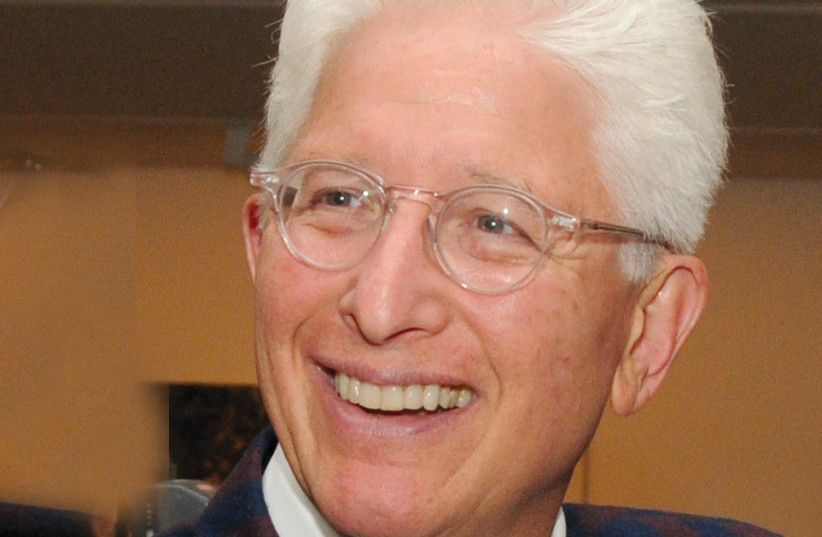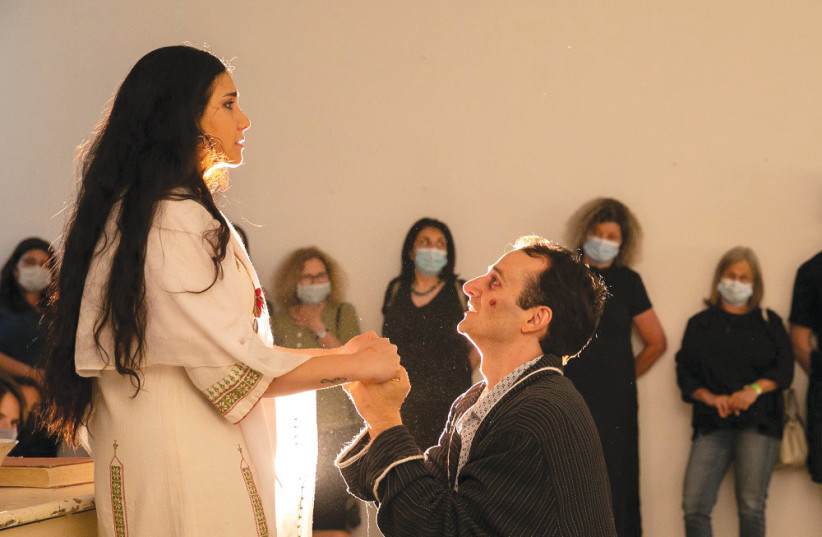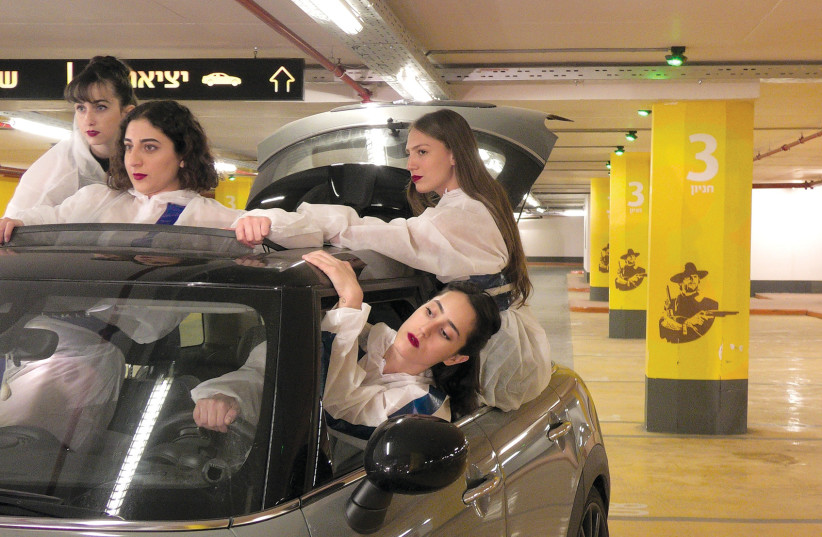Over the millennia Jerusalem has been scrapped over by just about anyone who found themselves traversing the crossroads of the ancient world. Just ask the Egyptians, Babylonians, Greeks, Romans, the Crusaders or Turks, to mention but a few of the civilizations that have moved in here only to eventually be moved on by some other invading army.
And, even when we are not facing threats from without, we can generally find some pretext or other for keeping the tension high and the political frisson sizzling. There are, of course, Jews, Arabs, Moslems, Christians, religious, secular Jews, and even Betar Jerusalem and Hapoel Jerusalem soccer fans, all of whom are perfectly capable of sticking a spanner in the harmonious living works.
But, if the Jerusalem Foundation’s Innovation Fund has anything to do with it, life may gradually become more relaxed and more prosperous for many of us.
Jerusalem Foundation has been around since 1966, when legendary mayor Teddy Kollek came up with the concept. Since then, the organization has dished out lashings of financial support to all kinds of institutions and projects in the fields of the arts, culture, science and technology, and industry. Thus far, over the past half-plus century, in excess of 4,000 projects across this physically and culturally sprawling city have benefited from a sorely needed helping hand.
Parks and cultural centers, neighborhood community and sports facilities, health centers and synagogues have all been nurtured under the Jerusalem Foundation’s auspices, and the city’s educational, cultural and economic endeavor has been provided with a supportive push in the desired direction, as have the restoration and preservation of heritage sites, including the Jewish Quarter and Via Dolorosa in the Old City.

AS THE going got even tougher, with the pandemic restrictions causing mayhem and almost complete torpor across the board, last year the JFI took a left-field leap into the unknown, with a seemingly irrational move into a brave new direction of philanthropy.
As the pandemic dug its talons ever deeper into quotidian life, the Jerusalem Foundation came up with a new fund designed to ensure Jerusalem’s vitality by encouraging innovative models for navigating challenging times and flourishing beyond.
Under the polished experienced stewardship of former Israel Museum director, and current Jerusalem Foundation executive chairman, James Snyder last year the Innovation Fund managed to raise $1.25 million of support which helped to provide a lifeline for dozens of bodies and programs gasping for financial and emotional breath. And, a few weeks ago, the fund announced the awarding of 60 grants for cultural and community-based initiatives throughout Jerusalem. Against all odds a total of $2.15 million has been made available this time round enabling the Innovation Fund to pass on sums ranging from $10,000 to $50,000 to initiatives across the city’s geographic, social, cultural, religious and economic landscapes.

This was the upshot of a request for proposals which drew over 200 applications, including submissions from organizations serving such traditionally under-resourced groups as haredim, Palestinians, immigrants, asylum seekers, the elderly, people with disabilities and members of LGBTQ+ communities.
During his 22-year tenure at the Israel Museum, Snyder not only cemented a reputation as a mover and shaker, and someone capable of enlisted big gun support, he also became known as someone who frequents the sunnier side of the street. Typically, he saw the global crisis as an opportunity for a philosophical makeover. “You could just shut down [in the wake of COVID-19], or you could use it as an occasion to reboot thinking about stuff.”
That applies to the JFI, too. “Honestly, something like this Innovation Fund of ours, the Jerusalem Foundation didn’t do this kind of stuff,” he notes.
This was a definitive all hands to the pump scenario. “It was, really, suddenly the crisis of the shutdown and the team in Jerusalem saying to us, can you get emergency money just to keep every organization alive. It was like they were screaming ‘Oxygen! Oxygen!’”
There may have been a palpable sense of a doomsday state of affairs but Snyder says he wasn’t going to paper over the cracks. “They said, we’ll give $5,000 to everyone. And I said, what’s that going to do? They said they’ll live until tomorrow, but I thought, what’s tomorrow? You’ll need to give them 5,000 more. It won’t work that way.”
Clearly something more substantial, and better grounded, was in order. “That evolved into this fund, which is pretty remarkable, to build something like this quickly,” Snyder observes. “
Ruth Diskin, chief program officer for the Jerusalem with responsibility for overseeing its grantmaking activities, is optimistic about the way things are moving in the capital. “The Innovation Fund has dramatically transformed our grant making capacity for the audiences we serve throughout the city. We look forward to continuing to extend its impact in meaningful ways.”
The executive chairman says the emphasis was also very much on generating a sense of togetherness between all the parties concerned, and not just doling much-needed cash to the individual applicants around Jerusalem.
“I joined in 2019 and the team in Jerusalem was getting ready to do a blueprint for the next 10 years. We did a bunch of roundtables and we brought together the heads of all the institutions and organizations who really had never been invited to sit collectively in that way.”
There was, evidently, some meaningful added value to be had from that line of attack, both for the applicants and for the chair.
“It was really great, and for me it was a little revelatory because for 22 years I was effectively focused on those magnificent 20 acres on that hilltop [of the Israel Museum site], and I didn’t really know the social cultural communal complexity of the rest of town. I mean I knew all sorts of situations the Jerusalem participants had with their dealings with the museum, but I didn’t know the organizations that served them all over the city.”
Snyder soon made up for lost time and began delving into some of the numerous outfits around the city that devote themselves to bettering the lot of Jerusalemites of all cultural, ethnic, socioeconomic and religious stripes.

THESE NATURALLY also feature many of those that put in for assistance as part of the Innovation Fund’s latest call for proposals.
They included ventures of a more artistic nature, such as Identities at the Museum on the Seam, a monumental outdoor public art installation that transforms a highly visible landmark site on the seam line between Sheikh Jarrah and Mea She’arim, and was produced in collaboration with Jerusalem LGBTQ+ Open House and the Paley Art Center. The latter was created by the Jerusalem Foundation over 40 years, to serve as a venue for arts activities in east Jerusalem.
The Jerusalem African Community Center is also in the grantee mix, as it seeks to maintain community leadership development for a pilot cadre of asylum seekers, in collaboration with the Jerusalem Intercultural Center.
Ever keen to encompass and facilitate as broad a sweep as possible of takes on life in the capital, the Innovation Fund also looked at the Van Leer Institute’s conference on Secular Life, which explores the wider meanings of secularity from diverse perspectives, in collaboration with the Jerusalem Secular Yeshiva, Jerusalem Women’s Film Festival and Lekhatkhila.
Snyder says he sees the buds of urban rejuvenation sprouting all over the show, including at some of the shabbier yet grandiose enterprises in downtown Jerusalem. The Clal Building is rightly considered by many to be an abysmal failure and a literally monumental failure on aesthetic and other levels. However, over the past decade or so the 15-story white elephant has gradually begun to emerge from the architectural ashes and today, houses social, environmental and cultural concerns that more than hold their own end up, for the benefit of the city’s residents across all ages and walks of life.
Principal among those heartwarming phoenix-like Clal Building-based ventures is Muslala. Today, when you make your way up the less-than-glamorous stairs, you eventually arrive at the top floor and balcony green-oriented concern which houses and supports a whole slew of environmental and community projects that are getting locals, from across the city’s social and sociopolitical spectrum, enthused and down and dirty with activities that enhance the quality of life here for all and sundry.
“Muslala is about urban sustainability and they are not the only ones,” Snyder says, noting they are not alone. “You’ll find a number [of Jerusalem organizations] that are doing things that relate to the environmental landscape and aesthetics.
Muslala is on the Innovation Fund’s grantee list, as it looks to further its aim of becoming a hub for NGOs serving the social needs of Jerusalemites, in cooperation with the Jerusalem Municipality. “What Muslala is about to do and which we are funding,” Snyder continues, “is to kind of redevelop the Clal Building.”
That is not just about the physical side of the edifice which, without putting too much of a fine point on it, could do with a basic, fundamental and totally thorough revamp. This is about spreading the good word as far and wide as possible. Snyder places his practiced finger on particularly salient undertakings that encapsulate much of what the JFI and the Innovation Fund set out to achieve.
“Last year we supported a project, which we are supporting this year again, with Muslala teaching beekeeping to single mothers from Sheikh Jarrah. It is about learning environmental sustainability, but it is also about microeconomics. On the one hand they [at Muslala] do that, but on the other hand, there is the Clal Building, which is probably the finest example of the most reductive kind of urban architecture,” he laughs.

There may be many a Jerusalemite who wouldn’t mind terribly if someone waved a magic wand and simply did away with the town center eyesore, which clearly isn’t going to happen. So why not make the best of a bad job and, at least, ensure the inside is far prettier and more rewarding than the store front.
“From the roof down there are all those cubby holes that are the homes of NGOs that are going to be a part of the future blueprint of the city,” says Snyder. Once they do this all the way down, there will be all these NGOs with a similar architecture and something pretty will emerge. That will be wonderful.
The Innovation Fund’s pan-social and cultural financial assistance purview also takes in Bayit L’Kol Yeled (A Home for Every Child), an after-school framework for at-risk Arab youth in east Jerusalem that aims to encourage social and educational advancement. Then, at the far end of the ethnic spread, there is Tvuna, which seeks to offer financial literacy training for young haredi women, in collaboration with the Joint Distribution Committee, Bank Hapoalim and the Labor Ministry.
It looks like Snyder and the Innovation Fund have left no civilian sectorial stone unturned. ❖
